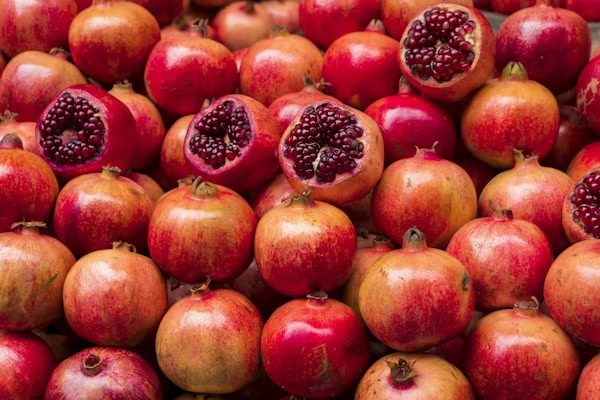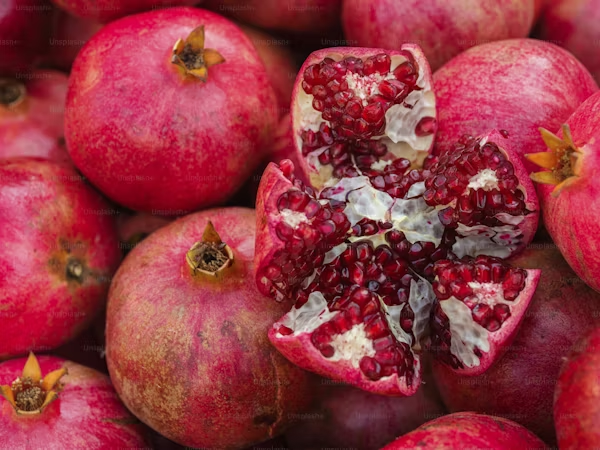In Tibb-e-Nabawi, pomegranate (Rumman/Anar) is highly esteemed, with several aspects linking it to the teachings of the Prophet Muhammad (peace be upon him):
- Hadith References: The Prophet mentioned pomegranates in several hadith, highlighting their health benefits and encouraging their consumption. For example, it is reported that he said, “Eat pomegranates, for they cleanse you of the devil and protect you from the evil eye.”
- Symbol of Blessings: Pomegranates are mentioned in the Qur’an as fruits of paradise, symbolizing abundance and blessings, which the Prophet emphasized as a part of a grateful and healthy lifestyle.
- Nutritional Importance: The Prophet’s teachings promote the consumption of nutritious foods, and pomegranate’s rich nutrient profile, including vitamins and antioxidants, aligns with this principle.
- Heart Health: It is believed that the Prophet recognized the benefits of pomegranate for cardiovascular health, as its properties can improve blood circulation and lower cholesterol.
- Digestive Benefits: Traditionally, it has been used for digestive issues, aligning with the Prophetic focus on maintaining digestive health through natural remedies.
- Healing Properties: The Prophet referred to pomegranate as a fruit that can have healing effects, emphasizing its role in promoting overall wellness.
- Cultural Tradition: Pomegranates have been used in Islamic cultures for centuries, and their consumption is often associated with religious and cultural significance, as encouraged by the Prophet’s teachings.
By promoting the use of pomegranate, the Prophet highlighted its role in maintaining health and well-being, making it a cherished fruit in Islamic tradition.





